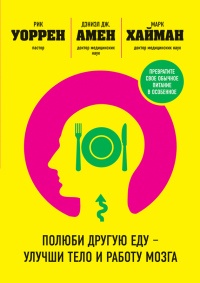Ознакомительная версия. Доступно 54 страниц из 269
Denton, J. (June 25, 1985). International terrorism. The nuclear dimension. Speech delivered to the Nuclear Control Institute Conference on Nuclear Terrorism at the Sheraton Carlton Hotel, Washington, D.C. Also published in Terrorism: An International Journal, 9(2), pp. 5160.
Department of Justice, FBI. (1990). Terrorism in the United States 1990. Washington, DC: Terrorist Research and Analytical Center, Counterterrorism Section, Criminal Investigative Division.
Diagnostic and statistic manual for mental disorders, Vol. iV (DSM IV). Washington, D.C.: The American psychiatric Association, 1994;
Dineen, T. (1996). Manufacturing Victims: What the Psychology Industry is Doing to People. Westmount, Canada: Robert Davies Multimedia Publishing.
Dinkmeyer D., McKay G. D. Systematic training for effective parenting: Parents’ handbook. Circle Pines, MN: American Guidance Service, 1976.
Dlack et al Reprod life: Proc. 10-th Int. Congr. Psychosomat. Obstet. and Gynaecal., Stockholm,14–17 June,1992. Carnforth., Parc Ridge (N.J.), 1992. P. 2 43–249.
Donaldson Behavior supervision. Reading, Massachusetts, 1980.
Donelly J., Duncan David F., Procaccino Anthony T . Assessing anxiety within a weight management setting: impact of a stress management seminar // Psychology. 1993. 47. № 2. P.273–282.
Downes D., Davis B., David M., Stone P. Gambling, Work and Leisure. London: Routledge, 1976.
Dreikurs R. Social equality: The challenge of today. Chicago: Henry Regnery, 1971.
Dreikurs R . The four goals of the maladjusted child // Nervous Child. 1947. V. 6. P. 321–328.
Dreikurs R., Soltz V. Children: The Challenge. New York: Meredith Press, 1964.
Drewnowski Adam. Cognitive aspects of food preference and food aversion // Bull. Psychonom. Soc. 1991. 29, № 3. P. 261–264.
Driscoll T.J. Food addiction // N.J. Nurse. 1995, v.25, № 4. P.4.
DuBrin A. J. Personal Magnetism: Discovering Your Own Charisma and Learn to Charm, Inspire, and Influence Others. New York, AMACOM, 1997.
Dubrow-Eichel, S. (1989). Deprogramming: A case study. Cultic Studies Journal, 5, 177–192.
D’Elio М., O’Brien R. Еarly adolescents substance use and life stress: concurrent and prospective relationships // Substance Use and Misuse. 1996. V.31. N7. Р. 873–894.
Eagly A. H., Ashmore R. D., Makhijani M. G . and Longo L. С What is beautiful is good, but…: A meta-analytic review of research on the physical attractiveness stereotype. Psychological Bulletin, 990. Vol. 110. P. 109–128.
Eckstein D., Baruth L., Mahrer D. Life style: What it is and how to do it. Chicago: Alfred Adler Institute, 1975.
Edwards X. Probability-preferences in gambling // American Journal of Psychology. 1953. Vol. 66. Pp. 349–364.
Eisler, Riane. 1987. The Chalice & The Blade. San Francisco: Harper & Row.
Ellis A. Are there «rationalist» and «constructivist» camps of the cognitive therapies? A response to Michael Mahoney // Cognitive Behaviorist. 1988c. V. 10. P. 13–17.
Ellis A. Better, deeper, and more enduring brief therapy: The rational emotive behavior therapy approach. New York: Brunner/Mazel, 1995.
Ellis A. How to stubbornly refuse to make yourself miserable about anything-yes, anything! Secaucus, NJ: Lyie Stuart, 1988a.
Ellis A. How to stubbornly refuse to make yourself miserable about anything — yes, anything! Melbourne, Australia: The Macmillan Company of Australia, 1988b.
Ellis A. Humanistic psychotherapy: The rational-emotive approach. New York: McGraw-Hill, 1973.
Ellis A. Overcoming resistance: Rational-emotive therapy with difficult clients. New York: Springer, 1985.
Ellis A. Reason and Emotion in Psychotherapy. New York: Lyle Stuart, 1962.
Ellis A. Techniques for disputing irrational beliefs (DIB’S). New York: Institute for Rational Living, Inc., 1974.
Ellis A. The rational-emotive approach to sex therapy // Counseling Psychologist. 1975. V. 5. P. 14–22.
Ellis A., Dryden W. The practice of rational emotive behavior therapy. New York: Springer, 1996.
Ellis A., Grieger R. (Eds.) Handbook of rational-emotive therapy. New York: Springer, 1977.
Ellis, A. Rational-emotive therapy / R.J. Corsini, D. Wedding (Eds.) // Current psychotherapies (4th ed.). Itasca, IL: F.E. Peacock, 1989.
Engs, Ruth. Introduction in: Controversies in the Addiction Field. Ruth Engs, editor. Kendall Hunt: Dubuke Iowa, 1990.
Enroth, R. (1977). Youth, brainwashing, and the extremist cults. Exeter, England: Potemaster Press.
Enroth, R., & Melton, J. G. (1985). Why cults succeed where the church fails. Elgin, IL: Brethren Press.
Enwright J. Enlightening Gestalt. Waking up from the Nightmare. New York, 1980.
Eppright T., Allwood M., Stern B., Theiss T. Internet addiction: a new type of addiction? // Modern medicine, 1999, Vol. 96, № 4, pp. 133–136.
Ernes СЕ. Is Mr. Рас Man Eating Our Children? A Review of the Effect of Video Games on Children // Can. J. Psychiatry, 1997. № 4. V. 42. P. 409–414.
Espmark S. Psychological aspects of obesity // Reprod life: Proc. 10-th Int. Congr. Psychosomat. Obstet. and Gynaecal., Stockholm,14–17 June,1992. Carnforth., Parc Ridge (N.J.), 1992. P.243–249.
Esbensen F., Elliott D. Continuity and discontinuity in illicit drug use: Patterns and antecedents // J. Drug. Issue. 1994. V. 24. № 1–2. Р. 75–97.
Espmark S. Psychological aspects of obesity // Reprod life: Proc. 10-th Int. Congr. Psychosomat. Obstet. and Gynaecal., Stockholm,14–17 June,1992. Carnforth., Parc Ridge (N.J.), 1992. P. 243–249.
Еasthope G. Perceptions of the cassis of drug use series of articles in international journal of the addictions // Int. J. Addict. 1993. V. 28. № 6. Р. 559–569.
Etzioni, A. (1987). A Responsive Society. San Francisco: Jossey Bass Inc.
Etzioni-Halevy E. Political manipulation and administrative power. A comparative study. L., Routledge & Kegan Paul, 1979.
Evans, David R., Pellizzari, Joseph R., Culbert, Brenda J., and Metzen, Michelle E. (1993). Personality, marital, and occupational factors associated with quality of life. Journal of Clinical Psychology, Jul, V. 49 (n4). P. 477–485.
Ознакомительная версия. Доступно 54 страниц из 269
























